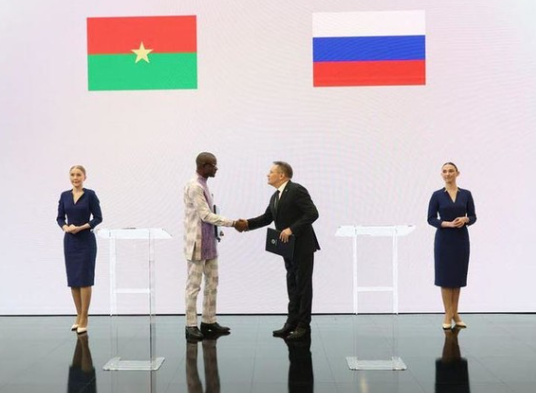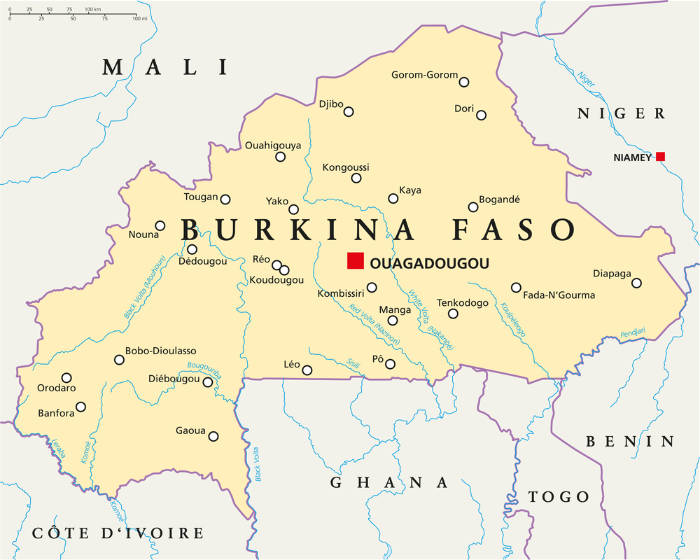Russia and Burkina Faso have formalized a deal to expand peaceful nuclear energy cooperation, including joint projects in radiation technologies and the training of specialists from Burkina Faso. The agreement was signed on Thursday (June 19) by Alexey Likhachev, CEO of Russia’s state nuclear corporation Rosatom, and Burkina Faso’s Energy Minister Yacouba Zabré Gouba in St. Petersburg.
Lakhachev said that “The signing of this agreement marks an important milestone in strengthening the partnership between Russia and Burkina Faso. We are ready to provide advanced technologies and expert support to implement joint projects aimed at sustainable development and enhancing the region’s energy security.”

Key areas of cooperation outlined in the document include the development of Burkina Faso’s nuclear infrastructure in line with international standards, regulation of nuclear and radiation safety, and the use of radioisotopes in industry, medicine, and agriculture. Moscow and Ouagadougou have been engaged in nuclear cooperation since 2023, following a request by Burkina Faso’s interim leader, Ibrahim Traore, to Russian President Vladimir Putin during the second Russia–Africa Summit in St. Petersburg.

Last August, representatives from Rosatom visited Burkina Faso and discussed plans to build a nuclear power plant, and in October, on the sidelines of the VI Russian Energy Week Forum Rosatom and the Ministry of Energy, Mines, and Quarries of Burkina Faso signed a Memorandum of Understanding on cooperation in the use of nuclear energy. This laid the foundation for cooperation in a wide range of areas, including approaches to the creation of nuclear power generation, non-energy applications of nuclear energy in industry, agriculture and medicine, the development of Burkina Faso’s nuclear infrastructure, and raising public awareness of nuclear technologies.
Rosatom Renewable Energy (until 2024 – NovaWind) – Rosatom’s wind energy division – is also working with the government of neighboring Mali in the construction of a 200-megawatt (MW) solar power plant near the capital Bamako. Last year, the company’s CEO, Grigory Nazarov, said that the construction of the power plant is expected to increase electricity production in Mali by 10%. He was quoted as saying “The construction, which will cost €200 million (US$217 million), will take a year. The solar power plant is designed to operate steadily for 20 years and will come under the full control of Mali’s Ministry of Energy in 10 years.”
Further Reading

 Русский
Русский














